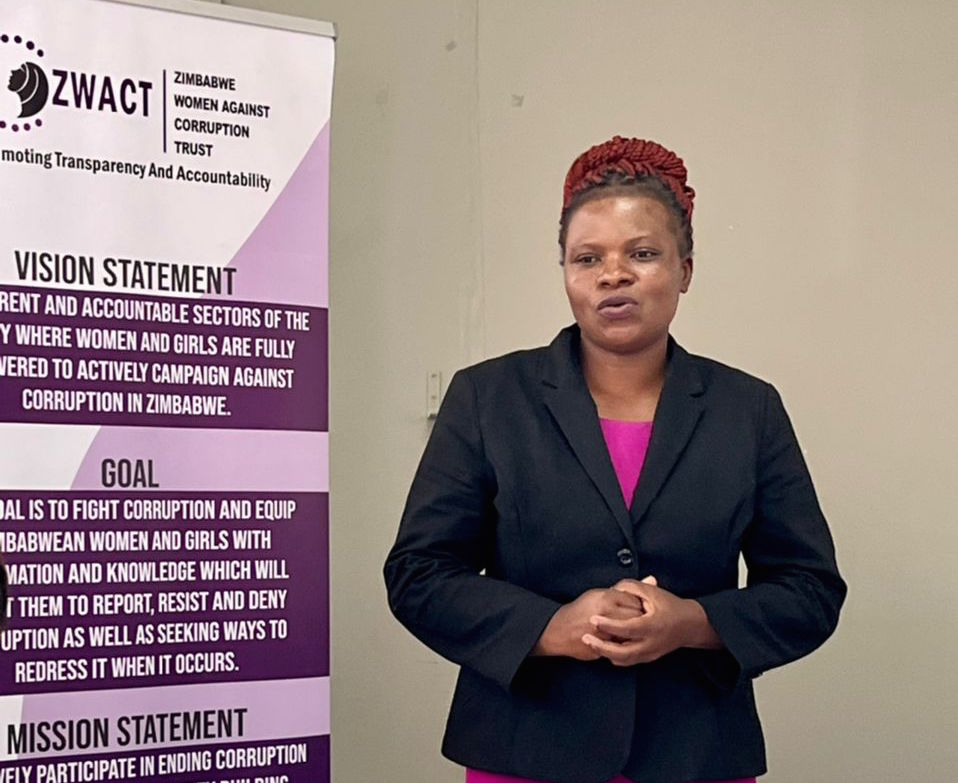|
Getting your Trinity Audio player ready...
|
A number of institutions globally commemorated International Anticorruption Day yesterday under the theme: “UNCAC at 20: Uniting the world Against Corruption.”
The commemorations are held globally on the 9th of December with the aim to raise awareness about the impact of corruption on the economy and people’s livelihoods. It is another opportunity to take stock of the efforts being made so far in fighting corruption, identifying the successes, and challenges, and also highlighting some recommendations to governments.
The Zimbabwe Women Against Corruption Trust (ZWACT) said the vice remains a major barrier to development but surprisingly, it has become part of everyday life both in private and public sectors.
ZWACT contends that corruption remains an obstacle to the achievement of sustainable development goals since it leads to weak institutions and deprives people of accessing basic services such as healthcare, education, water, and sanitation.
However, ZWACT said fighting corruption needs a collective approach that is collaborative efforts from governments, civil society organizations, and the private sector. Collaborative efforts entail working closely together with the same goal of ending corruption without necessarily competing.
They urged the government and the private sector to come up with preventative measures against corruption such as employment creation and improving the living standards of workers.
ZWACT acknowledges the essential role played by journalists in exposing corruption and reiterated that their role can never be underestimated as they risk it all to make sure that corruption stories are reported, not only in the country but to the world.
On the other hand, it maintains the fact that citizens are also important stakeholders in the fight against corruption. They can play their part in ending corruption by refusing to pay bribes and desisting from offering bribes to officials in order to speed up services or escape fines.
“Participatory citizens are empowered to monitor the provision of services and are more likely to demand transparency and accountability in the distribution of public resources. We believe the fight against corruption begins at a personal level therefore everyone has to play their part in denouncing corruption,” said Sandra Matendere, the ZWACT Director.
International Anti-Corruption corruption day commemorations coincide with the 16 days of activism against gender-based violence.
“We are however concerned about the rise in various forms of gender-based violence including sextortion/sexual corruption which is rife in workplaces and learning institutions. As an organization mandated to fight corruption with a focus on its devastating impact on women and girls, we denounce gendered forms of corruption like sextortion due to its long-term psychological effects on victims,” Matendere added.
Meanwhile, the Zimbabwe Coalition on Debt and Development (ZIMCODD) says Zimbabwe is losing at least $1 billion annually to corruption.
In a statement commemorating the 20th anniversary of International Anti-Corruption Day (9 December 2022), ZIMCODD said corruption has exacerbated the hardships being experienced by Zimbabweans.
“Of key concern to our movement, corruption remains cancer that exerts pressure on economic indicators thereby increasing inequality, poverty and derailing development outcomes. In Zimbabwe, graft and impunity have worsened the plight of citizens to a level where hospitals have no supplies, education is a preserve of the rich, Illicit Financial Flows are high, the debt stock is rising and we are falling back on Sustainable Development Goals,” ZIMCODD said.

ZIMCODD Executive Director, Janet Zhou, yesterday received an Anti-Corruption Champion Award from the US Secretary of State in Washington DC at the International Anti-Corruption Conference. This is in recognition of the #HowFar campaign in which ZIMCODD tracked corruption in the public health sector, with a particular focus on the use of COVID-19 public funding.






